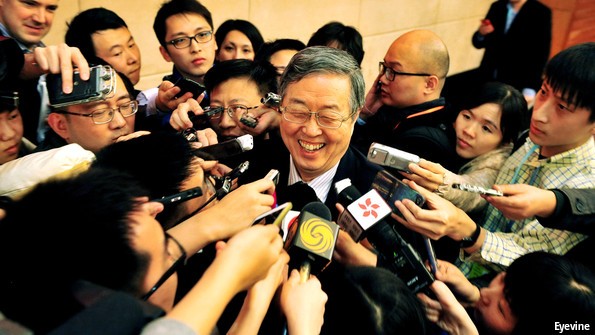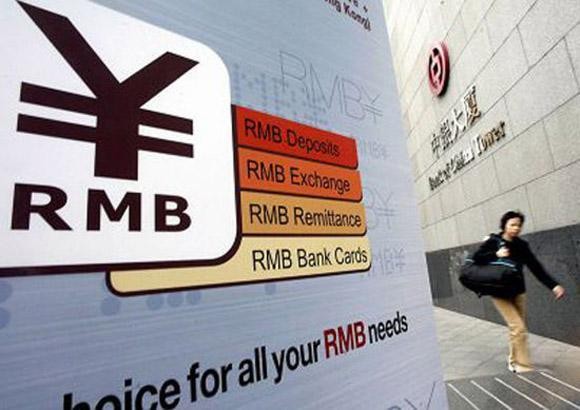China s Property Control Policies Are Unchanged In Economic Downturn
Post on: 24 Июнь, 2015 No Comment

Summary
- Some worry that as China’s economic development continues to slow, the government may make more changes in the property sector to maintain growth.
- The Chinese property market bubble will not burst in the short term because everyone knows that a collapse would be a huge disaster.
- The speed of development in the real estate industry is an economic issue, but a burst bubble is a political issue strong enough to affect China’s social stability.
This time last year, I wrote in this column that Beijing would take moderate measures to control the real estate bubble, and the facts are as I expected. As a result, large developers accelerated their international activities. For example, the Greenland Group added US $10 billion in overseas investment last year, and has invested more than one hundred billion yuan in several countries. Some institutional investors even set their sights overseas, including Anbang Insurance, which purchased the famous Waldorf Astoria Hotel in New York at a price of US $1.95 billion.
Some people worry that as China’s overall economic development continues to slow down, the government may institute changes in the management of real estate in order to maintain economic growth. Recently released statistics show economic growth in 2014 was 7.4%, still far ahead of other economies, and also within expectations. However, it cannot be ignored that this result is the lowest in 24 years, and many industries saw a slump in business.
In addition, the European economies are still stuck in a quagmire, the US recovery is weak, and the Ukrainian crisis has more potential to expand. You could say that the domestic macroeconomic situation is fraught with internal and external troubles. The monthly economic indicators show that in 2015 China’s economic growth is likely to continue downward, as indicated by the Manufacturing Purchasing Managers Index (PMI) released by the National Bureau of Statistics in January, which at 49.8% hit its lowest point in two years.

A few days ago, Mr. Wang Shi, Chairman of Vanke Group, the godfather of the Chinese real estate industry and for many years the country’s largest developer, commented that:
The domestic real estate bubble, although obvious, may not be broken; for the moment it depends on whether or not there are more currency policy stimuli.
Shortly after Wang Shi spoke, the People’s Bank of China announced that the deposit reserve ratio would be lowered by 0.5 percentage points as of February 5, a move which is expected to release 700 billion yuan of liquidity into the banking system. This is the first time the central bank has dropped the deposit reserve ratio since May 2012, and the second recent measure designed to increase liquidity after cutting interest rates by 0.25 percentage points on November 21 last year. This year, more easing measures are likely to come as pressure from diminishing economic growth continues.
However, these reductions are not enough to give the real estate industry any illusions, let alone any expectations that the government would introduce bailout policies. Wang Shi’s judgment only told part of the story. The Chinese property market bubble will not burst in the short term because everyone knows that a property market collapse would be a huge disaster, more lethal to China and the global economy than the 2008 financial crisis in the United States.
Furthermore, the speed of development in the real estate industry is an economic issue, but a burst bubble is a political issue, strong enough to affect China’s social stability. For example, when the largest real estate company in Shenzhen, Kaisa Group, was recently on the verge of bankruptcy, the first reaction of many affected property owners was to go to the city government to protest. Fortunately, the company was acquired by one of its peers and revived after capital injections. Try to imagine whether the Shenzhen municipal government could afford the social unrest caused by the Kaisa bankruptcy, not to mention the potential country-wide range of calamities which may have been triggered by the bankruptcy of a large national developer.
Wang Shi’s comment was also a warning that monetary policy stimulus will further inflate the housing bubble. This fear seems redundant, because the current control policies are mainly based on purchase and credit limitations designed to inhibit investment behavior, rather than to temper the demand for housing as a place to live by the general population. Although a partial easing of monetary policy will tend to stimulate investment, its impact will be limited. Furthermore, a unified real estate registration system is expected to be implemented in some areas this year, which will lay the groundwork to not only fight against the multiple real estate holdings of corrupt officials, but also to implement future taxation policies on invested property. Gradual improvements in these policies will fundamentally curb the property bubble and enable the market to return to a normal situation basically determined by supply and demand.
Finally, official data showed that in 2014 national real estate development and investment growth fell by 9.3 percentage points over the previous year; real estate sales fell by 7.6%; and real estate development enterprises’ funds fell 0.1% over the previous year after growing by 26.5% in 2013 over 2012. These data are sufficient to demonstrate the effectiveness of the current regulatory policies. More significantly, another giant developer, Hengda Group, announced in August last year, after a long and careful research process, the company has decided to implement a diversification strategy. This was not a single case and it has confirmed once again that inflection point of China’s property market is in progress.
(Note: The majority content of the article was published by South China Morning Post while this version is longer and a better reading for professional investors).
Disclosure: The author has no positions in any stocks mentioned, and no plans to initiate any positions within the next 72 hours. (More. ) The author wrote this article themselves, and it expresses their own opinions. The author is not receiving compensation for it. The author has no business relationship with any company whose stock is mentioned in this article.














